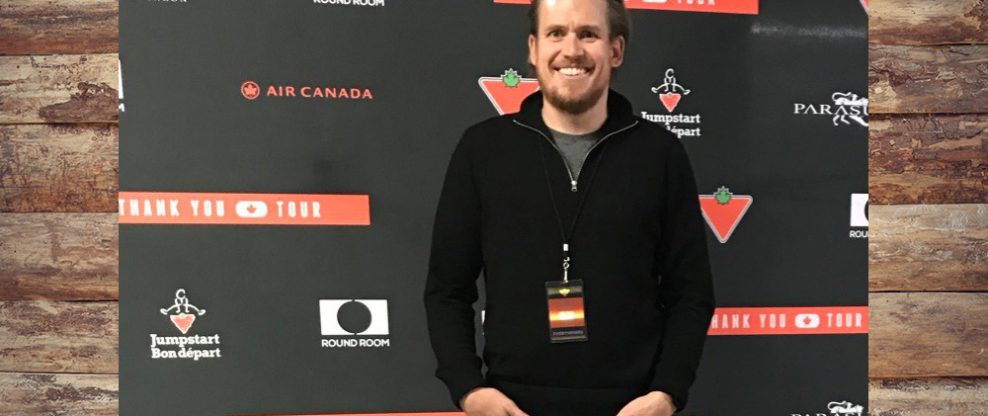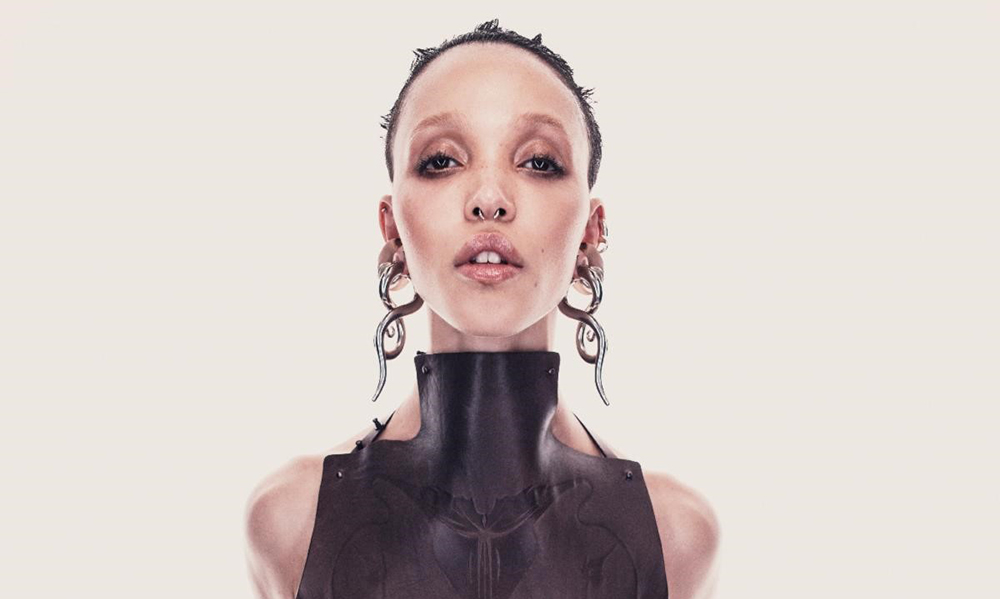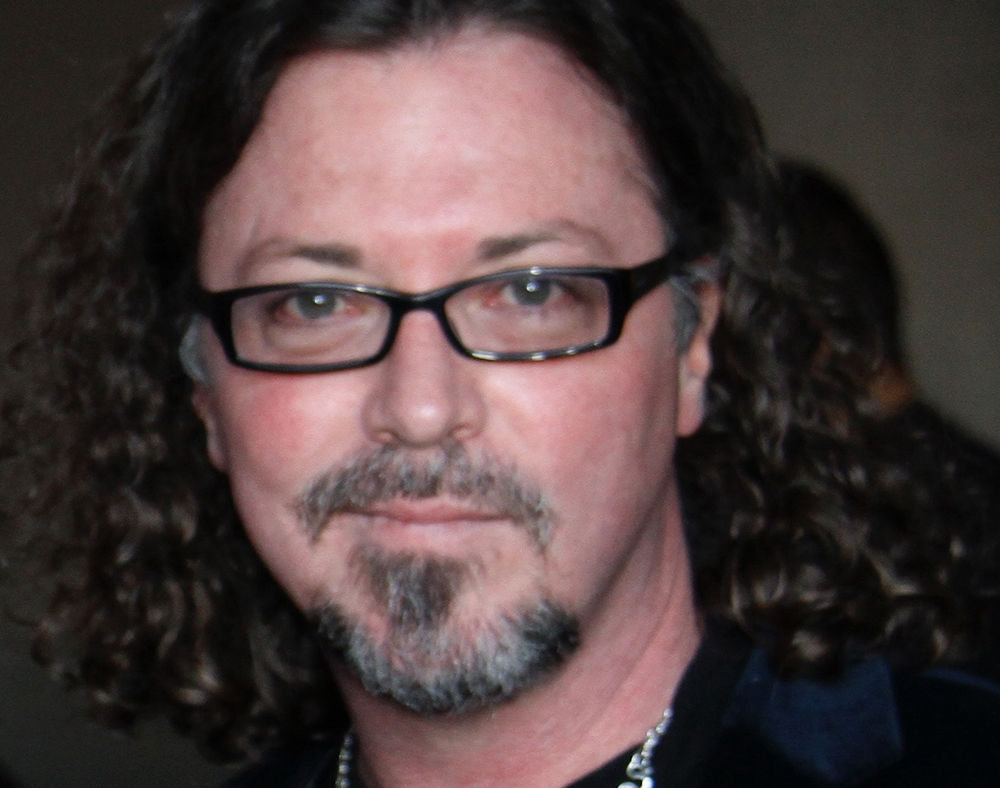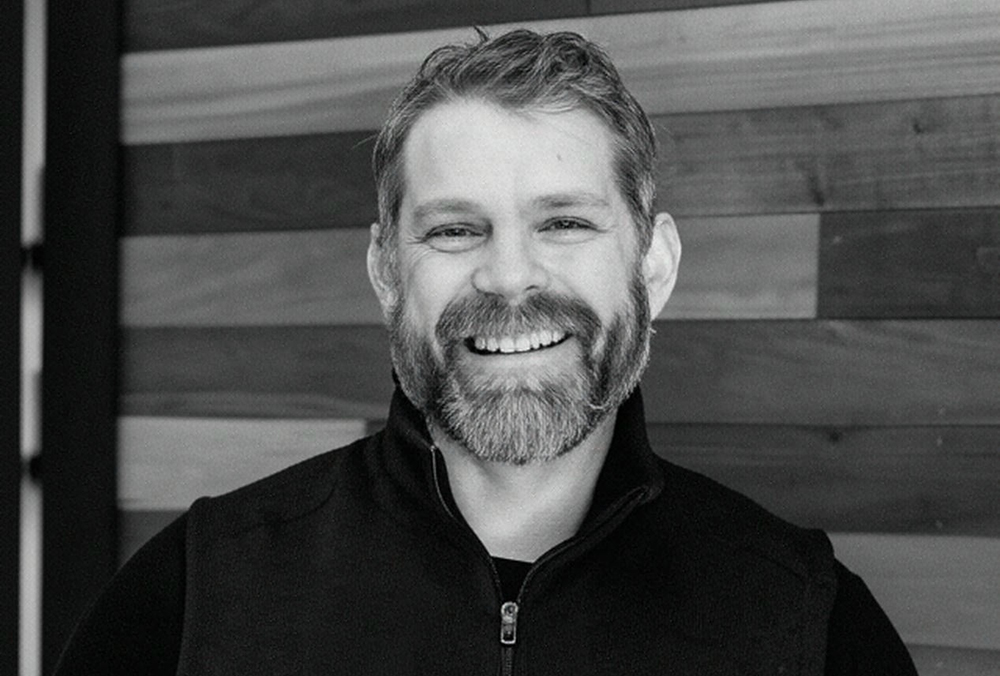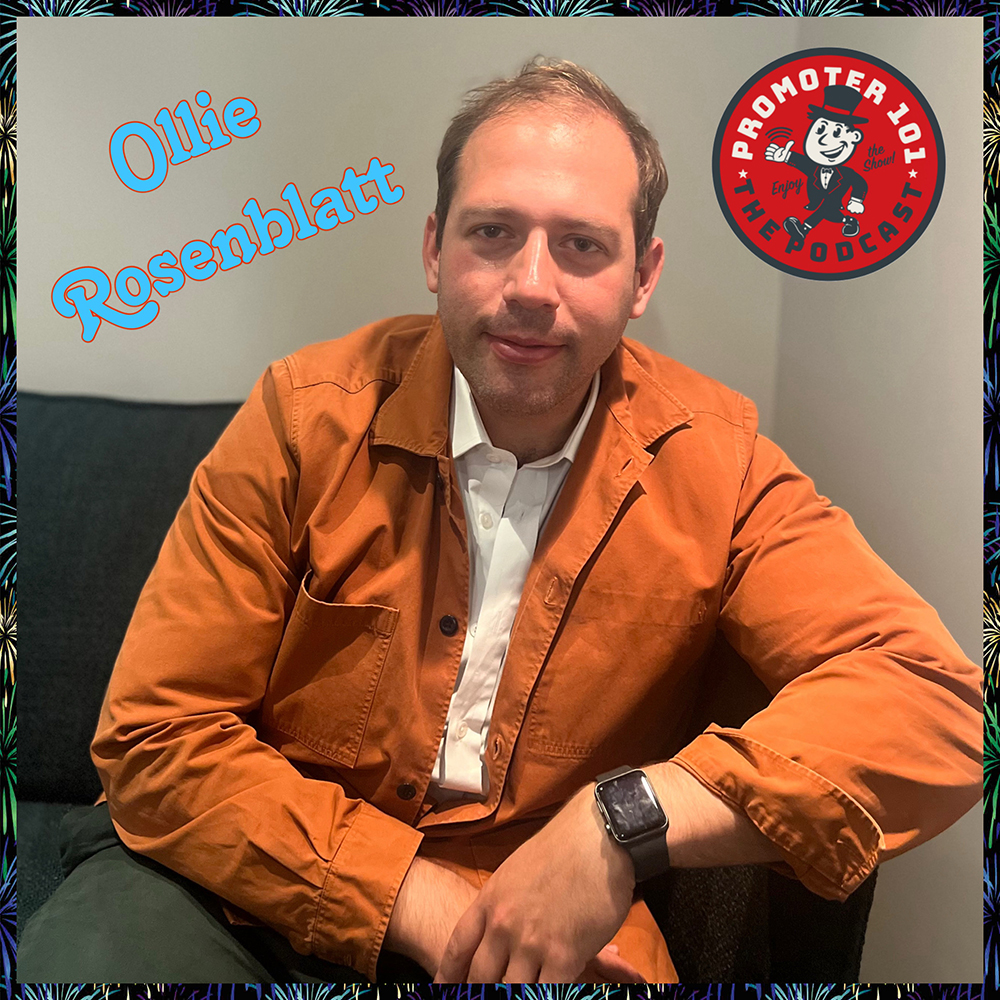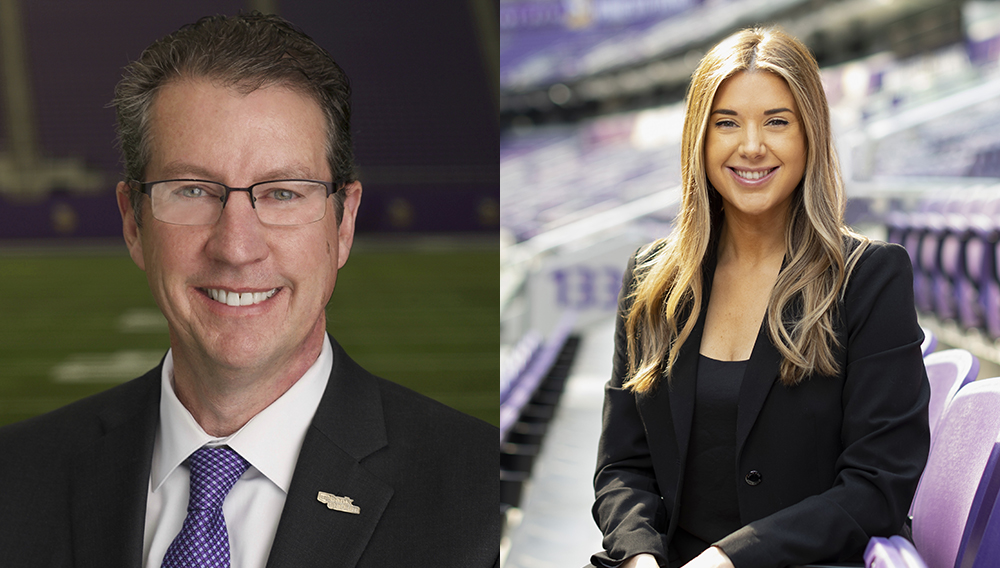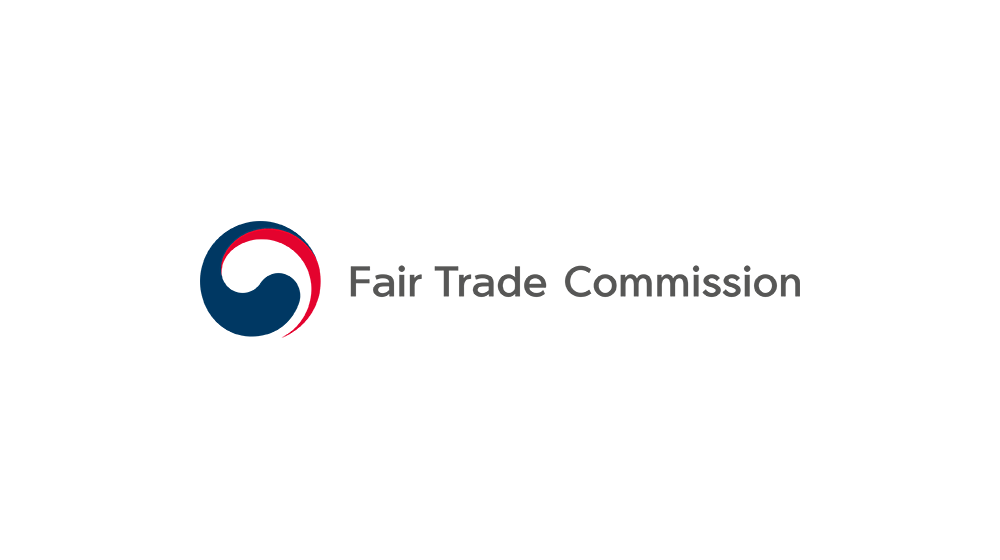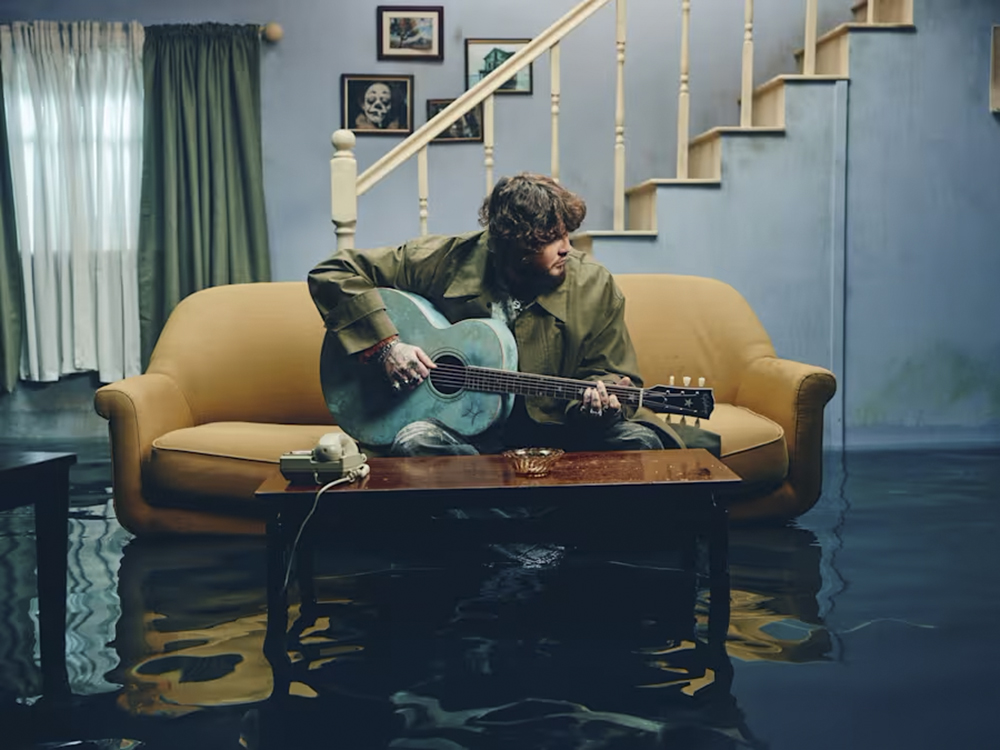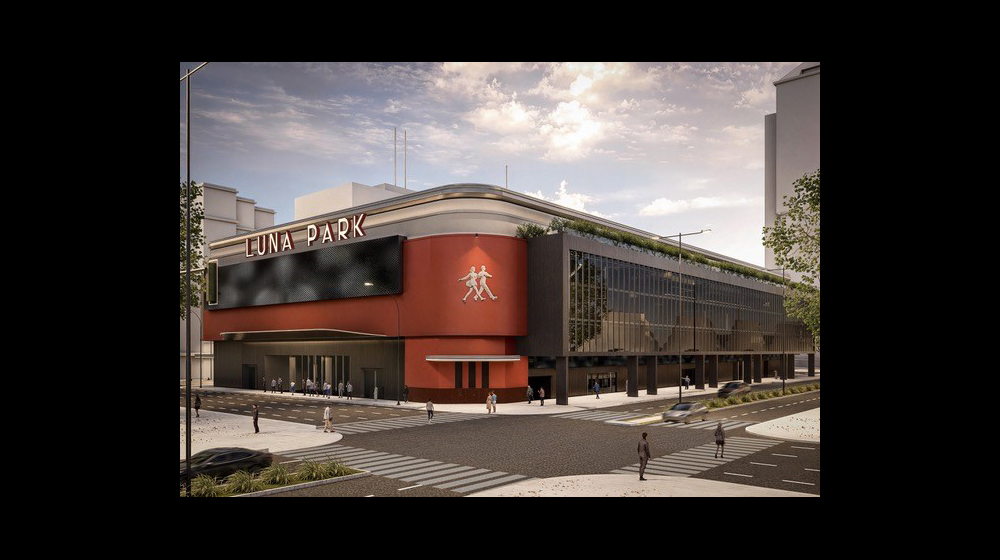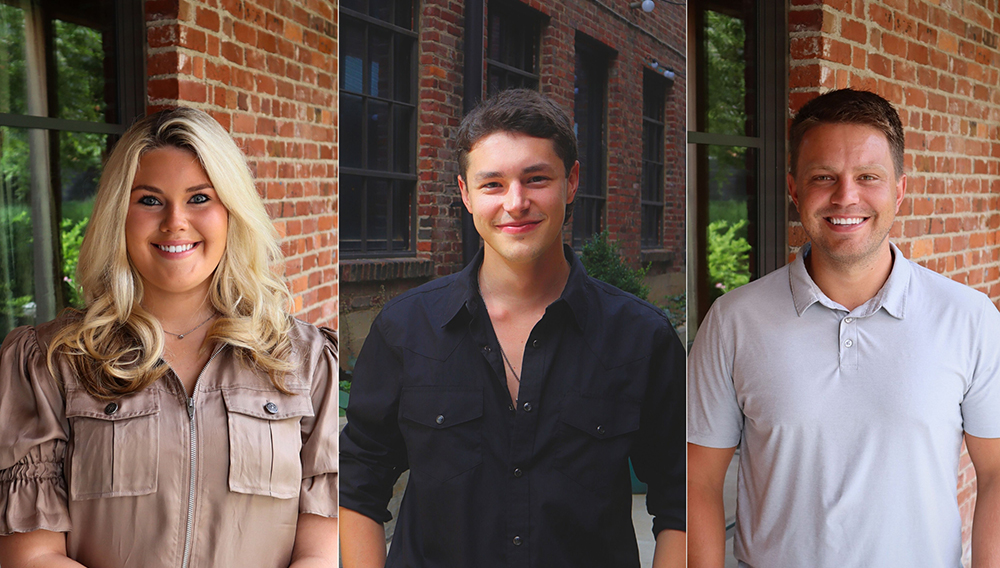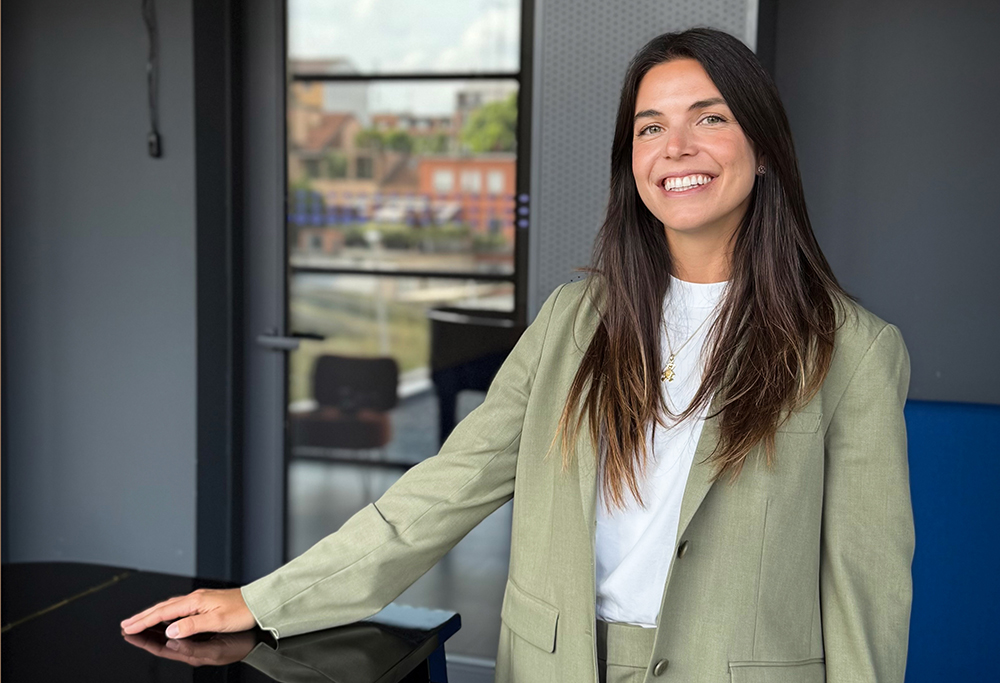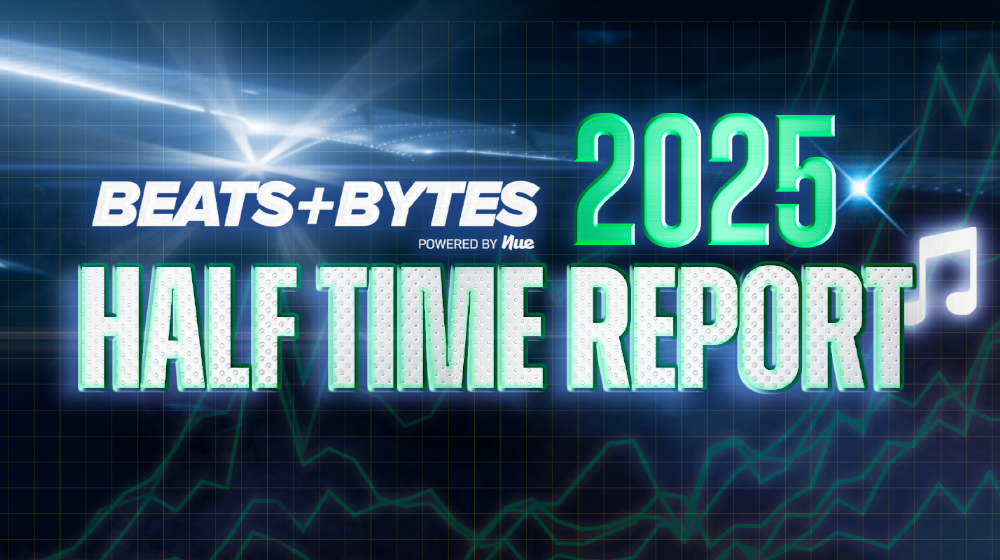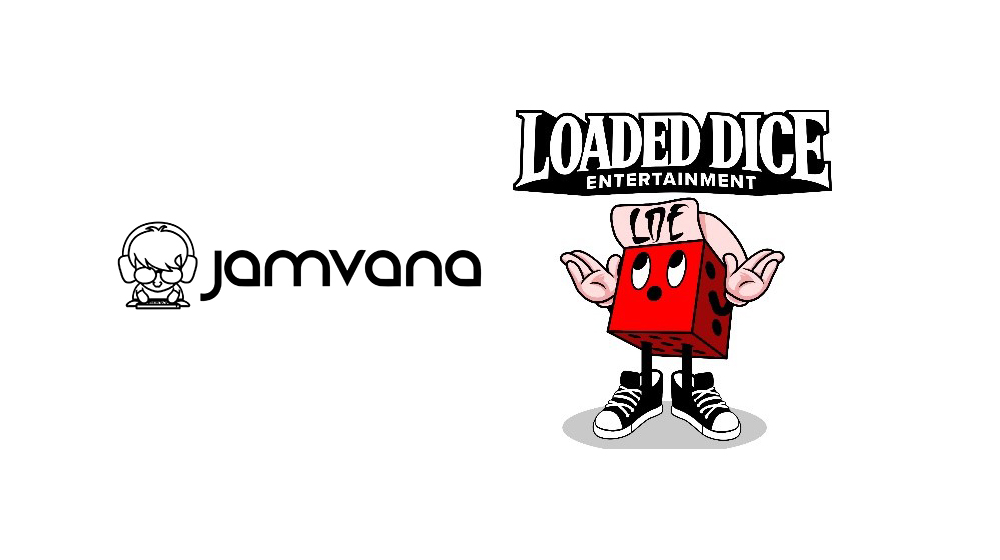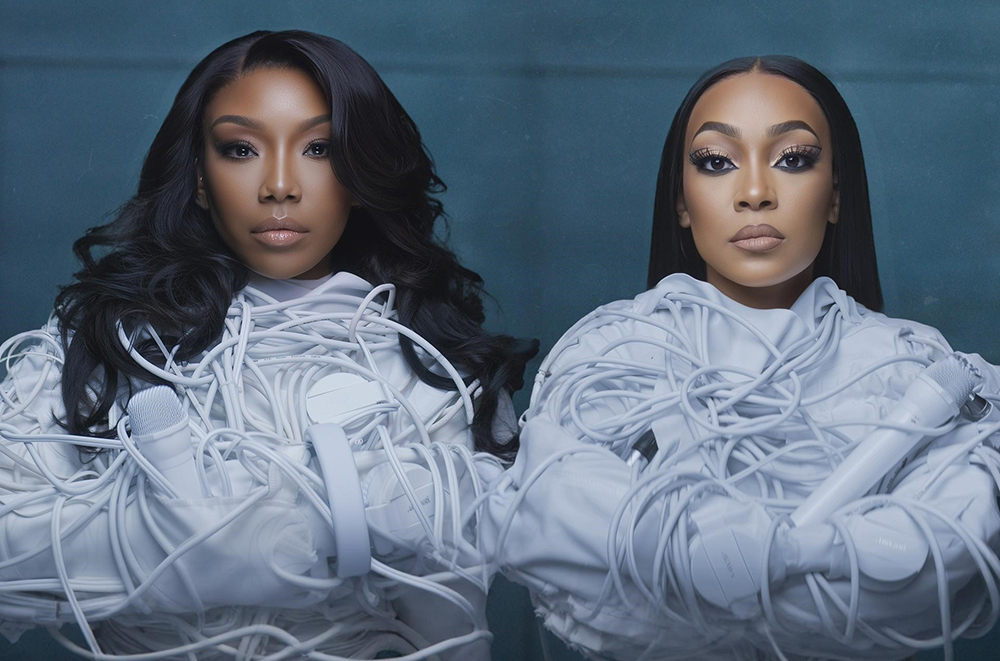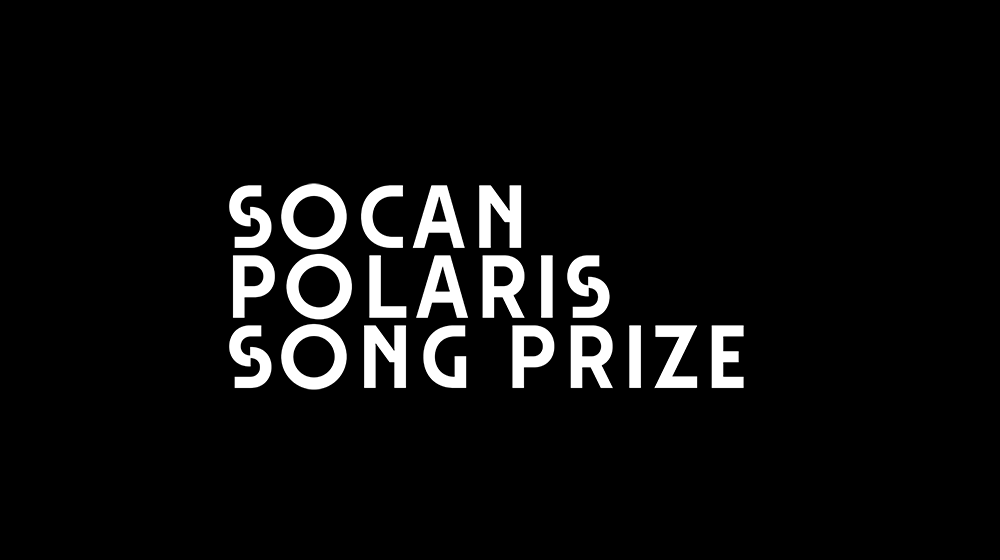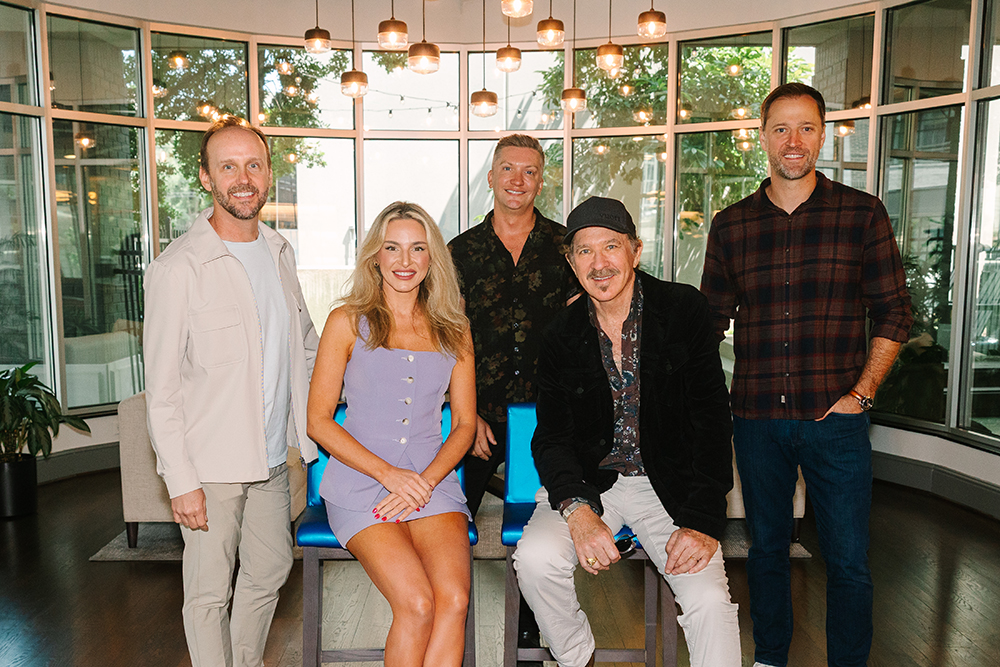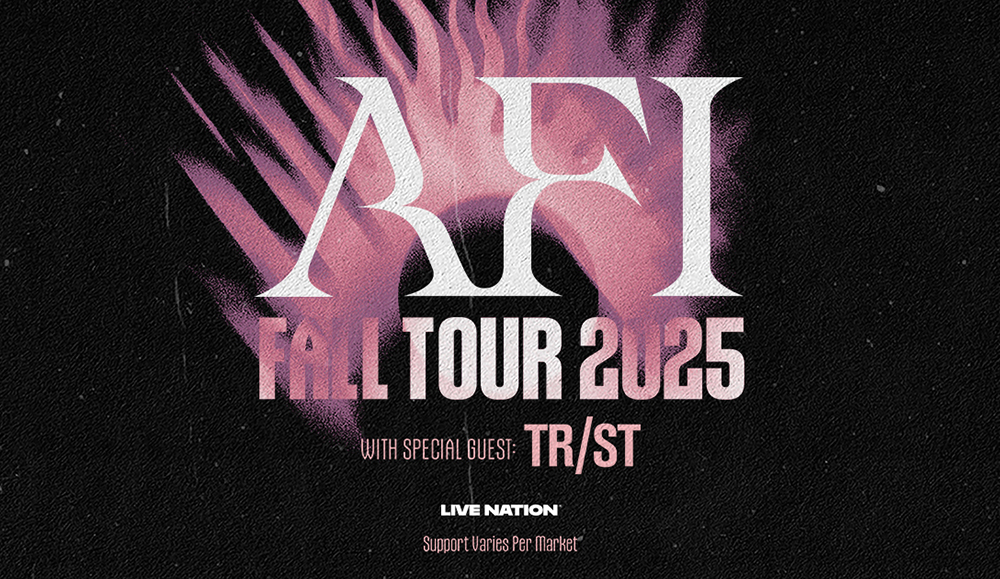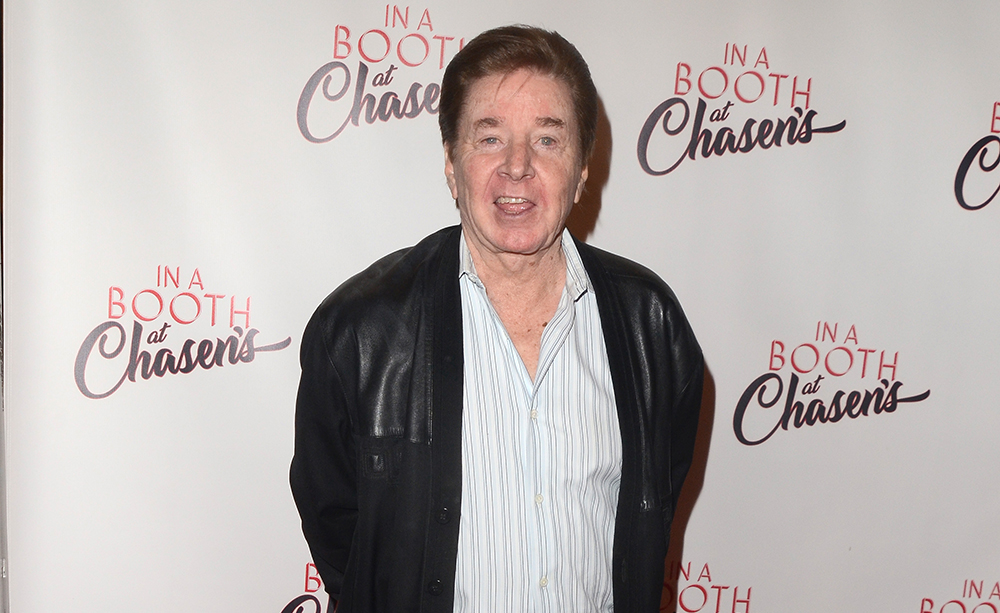This week In the Hot Seat with Larry LeBlanc: Stephen Shaw, founder, & co-president, Round Room Live.
For those still clinging to the hope that a young independent freshwater fish could survive in the ocean of live music entertainment look no further than to Stephen Shaw, the founder, and co-president of Round Room Live.
A Canadian, Shaw recently turned 37, and he’s likely to become one of the finest practitioners of his craft.
He’s learned from the best—read on.
In major moves on North America’s unruly children’s entertainment chessboard, three-year-old Round Room Live, based in New York and Nashville, first developed “PJ Masks Live”—the PJ Masks TV brand is ubiquitous to preschool and kindergarten kids—and now has taken Pinkfong’s “Baby Shark” global dance phenomenon and developed and launched “Baby Shark Live!”
The Fall tour run of “Baby Shark Live!,” kicks off in Spartanburg, South Carolina on October 3rd, and wraps November 10th in Philadelphia. “Baby Shark Live!” will visit more than 100 North American markets through 2020.
As any parent of young children will tell you this will almost certainly include a catchy repertoire of songs like “Five Little Monkeys,” “Wheels on the Bus,” “Jungle Boogie,” “Monkey Banana Dance,” and of course, “Baby Shark.”
Prior to founding Round Room Live, Shaw served as senior director, live events (2007-2013), and then president (2013-2016) at Michael Cohl’s S2BN Entertainment in New York City. There he produced and promoted some of the biggest kids tours ever, including “Yo Gabba Gabba Live!,” and “Alvin and The Chipmunks Live,” as well as being the tour promoter for “An Evening with Oprah Winfrey,” and “An Evening with Al Pacino.”
Shaw previously worked for Cohl’s Concert Productions International (CPI). After Live Nation acquired a controlling interest in the touring division of CPI In 2006, Cohl served as Vice Chairman of Live Nation, as well as CEO for Live Nation Artists until resigning and launching S2BN Entertainment in 2009.
For over a decade. Shaw had a front row seat to view Cohl as well as Arthur Fogel, John Meglen, Mike Luba and other live entertainment heavyweights.
“Baby Shark Live!” kicks off its 42 date Fall leg in Spartanburg, South, Carolina on October 3rd, and wraps Nov. 10, in Philadelphia. “Baby Shark Live!” will visit more than 100 North American markets through 2020.
We’ve had an amazing presale and general onsale to get this tour started. We first put up 32 shows, and then we put up 8 more, and a quarter of the shows sold out in the first few days. We have had to put on second and third (shows) in some markets. Talk about metrics, and identifying key pieces of numbers on a brand that gives you the confidence that it is going to do well. That show is phenomenal.
Your heart must have skipped a beat watching Céline Dion and James Corden singing “Baby Shark” in “Carpool Karaoke” in May. That video is over 19 million views on YouTube. Pinkfong’s “Baby Shark” video, voiced by Hope (Hopey) Marie Segoine, has over 1.7 billion views on YouTube. There are also “Baby Shark” videos with Ellen DeGeneres as well as Josh Groban and Sophie Turner, and Cardi B.
I know. There are so many of those. So many A-level celebrities that have done something with that. Kylie Jenner also has had a few big posts about it. She’s got an unbelievable amount of followers.
“Baby Shark Dance,” the most popular video of the “Baby Shark” song which was uploaded on June 17th, 2016, has received over 3.2 billion views worldwide to date.
It is the 8th most viewed video on YouTube. It entered the Billboard Hot 100 at #32 and ran for a 14 or 17 week run in the Top 50. SmartStudy (the South Korean educational entertainment parent company behind the “Baby Shark” rights holder Pinkfong) has an animated series that they have announced with Nickelodeon. And obviously, now, we are coming in as promoter and the producer to do the live touring. It’s very exciting for us. It is an exciting opportunity for us to take this four-minute video, this YouTube sensation, and create a 75-minute show.
How do you develop a show around a four-minute video? “Ahhh let’s see…”
(Laughing) It’s true. We have a great creative team in New York. That is anywhere from our director to our writers, to our scenic and costume designers, to our lighting designers and sound technicians. The creative team is phenomenal.
You add to the team as you go along?
Yeah. It’s all show by show. All freelance show by show. We have done two “PJ Masks” shows and built our “Baby Shark Live!” show.
For a show like “Baby Shark Live!” who are you your first calls to?
I call a director, and a creative producer: Jaimie Holmer and Josh Blackburn. Jaimie did “Yo Gabba Gabba! Live,” and she did “Alvin and the Chipmunks: The Musical” (aka “Alvin and the Chipmunks: Live on Stage”). She did the second “PJ Masks” show with us, and she was phenomenal. So Jaimie and Josh are my first calls. The beautiful thing of my current status of being a father of (three young) kids is that Jaimie has young kids too. So this is in her DNA right now. I recognized (the live potential) “PJ Masks” early on because my daughter was watching the show on TV and saying, “This is a great show. I wonder if they have licensed their live (show) rights,” and they hadn’t at that point. The same with Mike Luba (then S2BN Entertainment’s president of music) with “Yo Gabba Gabba! Live” His kids were watching “Yo Gabba Gabba!” on TV.
Mike Luba and Michael Cohl’s nephew Paddy Scace, introduced him to the children’s TV show “Yo Gabba Gabba!” Cohl hadn’t heard of the show but when he watched the program it impressed him enough to consider a live show. “Yo Gabba Gabba! Live” became the first family touring show at S2BN Entertainment.
Meanwhile, Jonathan Shank, while at Azoff, Geary, Paul Management, was also interested in acquiring the live rights to “Yo Gabba Gabba!” He took a pitch to Irv Azoff who, like Michael, didn’t know about the show either.
Clearly, back then many music industry executives overlooked Saturday morning TV children’s programming which over time became launch pads for live entertainment franchises. Many executives also missed the British preschool animated television series “Peppa Pig” which has been around since 2004. It has since become a mega-successful “Peppa Pig Live!” touring juggernaut.
But you have young children.
I have a five-year-old, a three-year-old, and a 9-month-old.
So you are sitting in front of the TV every Saturday watching programming on the Nickelodeon, PBS Kids, Cartoon Network, and various Disney channels
I know it better than anybody.
Michael Cohl then had a non-compete with Live Nation which he’d left so “Yo Gabba Gabba!” was perfect for S2BN Entertainment.
Perfect. Yes, this was S2BN. This was the model that he needed to find non-traditional entertainment to promote, to produce, and to tour. “Yo Gabba Gabba!” was brought in by Luba, and it opened all of our eyes to how powerful kid’s content can be.
Did S2BN have to do much research with “Yo Gabba Gabba!” before touring it?
On that one, no we didn’t. “Yo Gabba Gabba!” was something that Luba just banged his fist against the desk, and said, “I really want to do this.” And the investment into these shows is relatively minimal. We’re talking—I don’t even know what that one cost—it was probably half a million bucks.
Deep research was then unavailable. No merchandising or YouTube viewership numbers were available.
No. None of it. In terms of today, the key metrics are out there. You can see them. You can pick up the broadcast numbers. It’s becoming a little more difficult now with broadcasters like Netflix that don’t publish their viewership, but there are key metrics. Consumer products is a big one. International broadcasting, and then licensing is a huge one.
After working with Michael Cohl at S2BN Entertainment I’d assume you are pretty watchful of production budgets.
Yes. We pride ourselves on a few things, but one of those things is how we do our budgeting, and how we run our numbers in our books. Nowadays, we know what we need to make things work. We put a lot of time and energy into the data and analytics of it all. We know that on a weekly basis what profit goes toward our recoupment. We know our IRR (Internal Rate of Return), and ROI (Return on Investment). We know we are going to get into that profit scenario. That’s a huge thing for us because if you are not focused on the books, if you are not focused on the budget, then you can find yourself in a pretty tough spot.
How many people onstage for “Baby Shark Live!”?
There will be 10 to 12 actors. There will be a few swings, and subs. We will have a few extras there just in case we want to sub in or sub out. Then the touring team is another 10 or 12 people. Then we probably have another 15 people in tech, the creative team. So the total will be about 50 people in the theatre for two weeks of rehearsals. It’s all run on the local side by our head of operations and productions Rob Olds who oversees everything including being on time and to be on budget.
Musicians?
There’s no live music.
With the cost of mounting such national live shows are rehearsals outside New York and Los Angeles which will have steep costs attached?
Yeah. Our go-to is the Spartanburg Memorial Auditorium in Spartanburg, South Carolina (with a seating capacity of 3,244, and one of the largest stages in the Southeast). We go down there with two weeks of rehearsal time. It’s the whole theatre, and then they get the opening night of every tour that we do. They are great promoters and great presenters. It allows us to build our tech rehearsals which can be two weeks and not break the bank.
After Round Room Live’s “PJ Masks“ tour which kicked off in 2017, and hit 62 markets playing 84 shows, you weren’t planning on a follow-up tour so quickly, but so many promoters sought an extension of the tour.
Yes, and we had a lot of independents. We have great relationships with them, and they are partners. We did deals that were a bit different; where someone like, maybe like Michael (Cohl) or any of these (veteran promoter) guys would kick me in the butt for, but we did a great deal with the presenters because we were trying to build a company. We were very good about it. We put VIP into the pot. We let them share in a bunch of different ancillaries that we had. We made it great for them. and they made it great for us.”
I’ll bet you haven’t offered a similar deal with “Baby Shark Live!”
(Laughing) Listen, it’s the same group of presenters. These are the independents…
C’mon answer me. Not the same deal.
Not the same deal.
Business paradigms shift with success.
Yeah. No, no. We have done similar deals, and we work very closely with these (independent) guys, and we have had great relationships. That’s what helps us. That’s our health line at this point.
Tickets prices for live entertainment are higher than ever. Often out of the range of those struggling with housing or rental costs, and with health and family costs. How do you work out ticket prices for your children’s shows?
Well, you have to think of it from a parent perspective, obviously.
And they may have a couple of kids.
And they have more than one kid. That’s exactly it. So a family of four is going to the shows, and they are probably on a tighter budget than most. A family of four. They are paying for parking. There’s no way that they are getting out of there without buying something for their kids from the merch stand.
And buying hot dogs or popcorn.
Popcorn for sure. By the end (of the night) it could be $600. We’ve done our best to keep our prices low. That’s finding a creative way to subsidize those ticket prices. Our average ticket price is $42. We think that we could go higher, but again there is a price sensitivity when you are buying for a family of four. So we have been creative with our ticket pricing. We also do a different VIP model that allows anyone in the building to buy VIP. It is just not those that have resources to buy a $100 ticket front row and VIP. A VIP package is $50 per person on top of the ticket price.
What do they get with a VIP package?
They don’t necessarily get upfront (seating). It’s really just a meet-and-greet party, But it’s available to everyone. You, as a father, can say, “My value is with my kid meeting the PJ Masks, but I don’t want to spend the front row ticket price. So I will just buy balcony seats, and we will watch the show from outback, and I’ll spend $25 for the tickets, but I will splurge on the meet-and-greet following the show.”
Better than some of the VIP pricing I’ve heard.
I agree. It’s important to us that the fans are coming to see the show. We don’t want our yield per ticket to be too high and fill 60% of the house. We want a good fun environment where the entire theater is sold, and everybody is enjoying it, and not feeling like that they have just been gouged by a promoter.
There’s a price ceiling to what people can pay or will pay.
Yes.
This type of entertainment is also different.
Yes, and it has to be different. Again it’s that we know that there are ancillary expenses. There are prices other than the ticket prices that this family is going to incur. The other thing is that we have two or three shows out at the same time. So we want the family that goes to “PJ Masks Live” to then go to “Baby Shark Live!” They aren’t doing it if they are spending $600 or $700 at “PJ Masks Live.” They may do it if they spend $200 at “PJ Masks Live.” They may do it if they spend $200, and have a great day.
Do you coordinate the routing of your children’s vehicles in order to avoid individual market fatigue?
Yes, 100%. We are very methodical in our routing, and in our booking. We work closely with William Morris (WME Entertainment). We’ve got a great relationship with (talent agent) Ryan Jones who oversees all of our bookings. We have all of our data in kind of a big research document that we can access, and we do that all of the time. Looking at the times between shows. What the sales were like. What the sales were the second time. Obviously places, and ticket prices, but we watch how they (the shows) perform. Do we take off five months or do we go back in three months? We pull data from our other shows to make sure we recognize how many times a kid’s content—because you add in “Peppa Pig!” and you add in “PAW Patrol Live!” and what VStar Entertainment Group and others are doing. There are a lot of great shows out there, and they are all popular.
So you have to educate independent promoters about a children’s entertainment show before pitching them?
You do and that is why you have a close-knit tight community of presenters who are willing to ride with Round Room. It’s not about the content. It’s that “We believe in this show. We’ve done our research. We will share our research with you. We are putting money behind it. We are putting an A-list creative team behind it. We have a full marketing plan that we are convinced will work. Believe in us, and this could be a success.” That is how we’ve done it with those presenters, and listen they have been nothing but great for us.
While you worked at S2BN Entertainment from 2007 to 2016, you were part of a team developing live shows. As co-president of Round Room Live, you are effectively executive producer of the full production. A big difference because every aspect of the production, including developing the storyline, costumes, the characters, and working with actors and the production crew is under you. That’s a lot to take on.
Well yes, but it’s just two buckets, right?
Still, the learning curve must have challenging. I’m talking about deep diving down to figuring out what equipment to be used and at what cost. “What color should the costumes be? What fabric are we using.” A difference from picking up or developing a contained or an evolving show. You’ve had to learn a great many things very rapidly in the past three years to develop and move your productions forward.
Agreed. But again it breaks down to that there is a promoter side, and there’s a producer side. If you put in great people and have great product, you can do a lot with that.
There are things in the past you didn’t have to worry about too much.
Yes, but with S2BN and Michael, we did some producing. That became a part of our business. “Fuerza Bruta” and “Spider-Man: Turn Off the Dark” was a big one. What I learned working with Michael Cohl was the core (business) competencies, and the skill set of producing and artistry, and I was able to sort of to take that to a different level with Round Room where we have acquired great IPs, and we are producing what we believe are great kid shows.
With “Fuerza Bruta” S2BN was already working with non-traditional fare.
Yes.
(“Fuerza Bruta,” created by Diqui James with music by Gaby Kerpel, originated in Buenos Aires, Argentina in 2005. The show ran Off-Broadway until 2016. It has been performed in Buenos Aires, Seoul, Cordoba, Bogota, Queretaro, Miami, Chicago, Lisbon, Bilbao, Berlin, Moscow, Shanghai, London, Edinburgh, Antwerp, Lima, Taiwan, and Macau.)
It’s been a learning curve for you nevertheless.
Right and we worry about them now and we think that we are doing a pretty good job at doing it.
Given your live entertainment career, there must be few markets in North America you don’t know.
Yeah. I’ve spent a lot of time on the road. I know a lot of the theatres. Through Round Room, in particular, because the volume that we’ve done in the first three years is high. When we finished this last “PJ Masks” tour which closed in early June (2019) at that time we had played 225 shows.
How many of those shows would you have been at?
Of the 225? Five. I’m trying to build a business.
How big is your office staff?
We’ve got three people in Nashville, and in New York, we have 5. So we are at 8 on the corporate level and obviously, with each tour, we hire people.
For decades live family entertainment in North America was an annual and erratic run of circus and skating productions, shows by children’s musical artists like Raffi, and live productions developed by the Walt Disney Company or via PBS and Nickelodeon.
Yes. “Sesame Street” was a big touring show. When I started Round Room three years ago, it was with a direct mandate to build out a kid’s content division. It is a bit of a fractured marketplace. There are a few people in it. Obviously, I see Jonathan Shanks doing a lot of work for Red Light (Management), and he has done some great shows. He’s part of it (children’s live entertainment, but nobody has really owned the market.
You and Jonathan Linden (Co-President, Round Room Live) both worked under Michael Cohl not only at S2BN Entertainment, but also during his stints at Live Nation, and Concert Productions International?
Yeah. Jonathon and I ran Cohl’s company S2BN from 2014 to 2016. So Jonathan Linden came in here.
You two both worked on developing “PJ Masks Live.”
“PJ Masks Live” was the first show that Round Room Live did. We acquired the IP from eOne in the summer of 2016. We produced the first live tour in the Fall of 2017. Entertainment One owned and produced “PJ Masks.” Chris Taylor (Global President of Music, eOne), whom I worked really closely with during that process had a relationship with my good friend Jonathan Linden that he came and said, “We love what you are doing with “PJ Masks Live.” Would you be interested in a bigger deal where we put money into Round Room; where we work out a partnership; and you can be a live provider for Entertainment One; and we can use your resources if we get anything for our music division?”
That’s a handy thing to have given that eOne has a stake in “Peppa Pig,” “PJ Masks,” “Ben & Holly’s Little Kingdom,” and the “Ricky Zoom” TV series
It sure is, especially when we are talking kids because they own “Peppa Pig,” and “PJ Masks,” two of the top three kids products, and brands in the world.
eOne has the pipeline, including its children’s television productions, and its 8 management companies.
And they’ve got the pipeline. So part of that deal was that I had the resources to bring in Jonathan Linden in to run the company with me. He’s my partner in the business and has come in. He’s wonderful, and he’s a life-long friend, and an amazing businessman and legal mind. So he’s running the company with me and Entertainment One took a bigger stake in the business. Now we are off and running. We have acquired the rights to a few other kids’ content. We are building out our experiential and exhibition platform and getting into some other non-traditional touring like our skating tour “Rock The Rink” that has run one full season, and is now launching for another with a 30- show coast-to-coast arena tour in Canada starting on October 5th in Abbotsford (British Columbia).
(“Rock the Rink’s” cast will feature Canadian greats, Tessa Virtue and Scott Moir, Patrick Chan, Kaetlyn Osmond, and Elvis Stojko; Italian Olympic Medalist and World Champion, Carolina Kostner, and Italian World Champions, Anna Cappellini and Luca Lanotte, and Olympic Medalist, and four-time U.S. National Champion, Jeremy Abbott.)
You also have the rights to British-Canadian-American animated children’s television series “Ranger Rob,” created by Alexander Bar?
“Ranger Rob” is British Canadian content. We have the rights to it. I’m not sure what we are going to do it with it. The biggest ones, “PJ Masks” and “Peppa Pig,” will each come to us at some point. The third one that we’ve got in our library is “Baby Shark Live!”
In writing the history of Broadway “Spider-Man: Turn Off the Dark” will likely be recalled as a freeway pile-up that Michael Cohl gamely tried to sort out. What was your takeaway in watching what happened while you were at S2BN Entertainment?
I was somewhat separated from the show. The show was separated from the company. It was more a Michael endeavor more than it was an S2BN endeavor. Having said that, there is a ton of respect to Michael for going in there and doing what he did, finding the deficiencies. Handling some of the costing. You could spend $60 million on a show, but if you are not recouping on a weekly basis, if you are not turning a weekly operating profit, and if you are not directing that toward recouping that $60 million, you are forever screwed. There was a respect to Michael because he got it to an amazing place from what it was when he first came in.
(Along with veteran producer Jeremiah J. Harris, Michel Cohl oversaw the launch of the most expensive Broadway show in history, “Spider-Man: Turn Off the Dark,” with a price tag that reached $75 million by its opening night on June 14, 2011.
Cohl had a modest stake in the $30 million that original producers, David Garfinkle, and Tony Adams, had raised for the show that had been in development since 2002. The pair had secured the rights to the characters and attracted the big-name talent. However, the veteran Adams then suddenly died, felled by a stroke. The inexperienced Garfinkle was left at the helm. Nearly four years later, the production remained in development and was nearing bankruptcy
Another investor Arny Granat of Chicago-based Jam Productions and U2’s Bono, and the Edge—investors, and the first-time theatrical composers for “Spider-Man—lobbied Cohl to try to salvage the show from a premature death when the money ran out. Cohl reportedly raised 70% of the show’s budget from investors in the media, film development, and oil industries
The show closed on January 4, 2014, due to falling ticket sales, and unable to get injury insurance with investors reportedly losing $60 million.)
Much of what has been said about the show is from it extended 182-performance preview run while actors were being hospitalized for injuries, machinery malfunctioned, and director Julie Taymor was sacked. New York critics were also daily bashing the shoe in the period
Yeah.
How is your relationship today with Michael Cohl with whom you worked with for so many years?
I left after 12 or 13 years of working for him. He was, and is, one of the greatest and most successful impresarios of all time. There really isn’t any one person who is more influential in my professional career.
You began working under him after graduating from McGill University in Montreal with a B.A. in arts in 2005.
Yes, I started at Concert Productions International in 2006. I had known Michael for a few years before that because his oldest son Jake is one of my best friends in the whole world. Still to this day. We went to high school together, and we are best pals. We are still are great friends.
So you attended Upper Canada College in Toronto?
Yeah, I did. From Grade 8 to Grade 13.
Prior to CPI, you had worked the summer on the Rolling Stones’ worldwide tour “Licks” in 2002, and then on their “Bigger Bang” tour in 2005.
Yes, I did a Stones’ tour in 2002, and I worked for Norman (Perry) although I spent a lot of time with Opie (production manager Dale “Opie” Skjerseth who has also overseen Guns N’ Roses and AC/DC tours). That “Bigger Bang” tour to me was just phenomenal. It was two years, and 150 shows. That tour grossed half a billion dollars. Unbelievable. And Opie was the production manager, and Michael was the promoter/producer, and Steve Howard was the guy behind the scenes engineering the production.
What was your take from working alongside Michael day-to-day for so many years? Watching him, and seeing the way that he thinks in business.
Listen, he was tough, and he asked a lot of his people. He demanded perfection, but he was good, and he was a deal maker. To your question: One of the things that struck me the most was he was so much more a businessman than–he’s a phenomenal promoter, and a great producer still to this day, but he is through and through a businessman, and a dealmaker. He taught me a lot of those skills. While it was challenging and tough, I’d sit across from his desk for hours and hours a day. I still look back, and think that you could take the skills that he taught you, and do anything in life which I did. I started a company in Toronto in 2014 that was not related to entertainment in any way, but it was just sort of business skills that I learned from working with Michael that gave me those resources.
What was the business?
It was a cold press juice company in Toronto called Greenhouse Juice with Michael’s son Jacob and another fellow. We sold it a few years later. Amazingly, the beauty of shows is that they are like businesses. It starts with an idea and an opportunity and you acquire or create the IP, and you have to finance it, and you have to bring in investors and partners. You deliver it, and you market it, and promote it. Then you close it down. It’s a show. It has a set life. We do this so often that starting another business, whether it’s a juice company, it was almost easy for us. It was easy for us to build a business plan, find money, start with a location and then build a product, and find the right people to operate it.
To your question again. It is an amazing skill set that Michael equips you with, and it is a testament to all of the guys before me going back to Arthur Fogel, Michael Rapino, John Meglen, and Mike Luba and all of those guys who have spent a lot of time sitting across from Michael. They are some of the most successful people in the live entertainment industry. They all did the same thing. They are each equipped with the skill set because Michael made them learn it, and made them be perfect and diligent in their jobs.
I interviewed both Michel Cohl and Arthur Fogel (CEO of global touring at Live Nation) at Canadian Music Week in Toronto in 2013.
I watched both of those interviews. I worked for Michael for many years, but I was kind of infatuated with Arthur’s career with Live Nation. He started doing global touring to this massive level, and the grosses and the productions, the tickets sales, and the lengths of these tours were so phenomenal that I was blown away by it all. When I started Round Room one of the first calls that I made was to Arthur and I said, “Do you mind if I sit down with you, and just tell you about my plans?” I just wanted to seek advice from key advisors; guys that I looked up to my whole life; guys that I respected. And he was nothing but kind. He opened the door. He sat me down, and he gave me great advice. Furthermore, that was three years ago, and we still see each other quite frequently when I’m in L.A., and again he’s been great. We have lunch. He asks, “How can I help? He lends me his ear on new projects that we are looking at. We are working in different entertainment areas. They are separated. But it’s a great relationship. He’s a great guy.
What did you think of the film documentary “Who the F**k is Arthur Fogel?”
I loved the film. Again, you like it because you love the topic. You like the IP. You love the brand of that incredible career from Gaga to U2 to Madonna. There are just so many amazing artists that he’s worked with.
Two things in the career portfolio particularly stand out. Being tour promoter for “An Evening with Oprah Winfrey,” and An Evening with Al Pacino.”
Yeah, those were great. Those were amazing opportunities. Both incredible people. Oprah Winfrey is the most wonderful, nicest person in the world.
She’s good to work with?
Incredible. She puts a lot of pressure on her staff, but she’s unbelievably lovely. We had the meet-and-greet, kind of a Q&A that 150 people could come in and watch her soundcheck with just her onstage while working on camera and lighting positions. It was just her. She was just wonderful.
When was this?
It was in November and December 2015 in Australia. It was myself and Michael (Cohl), and then we partnered with Paul Dainty on that tour. The Dainty Group was our presenting partner in Australia, and they were great. It was a great, great tour.
Al Pacino?
That was also fun. We did a handful of dates that started in 2014. I don’t think there were any more than 10. We did a few North American dates including in Ottawa and Boston, and then we went to the UK and did some dates there. That was done with a Q&A. We would hire someone like you or a film critic and they would interview him. They would probably come with 30 questions, and they ultimately would only ask five questions because they’d ask one, and he would just go off. He’s off (answering) for 20 minutes. He was phenomenal. We did this 15 minutes video montage that started the show, and by the end of the video montage, the crowd was standing and cheering and screaming from their seats. The entire theatre goes dark, and there’s one spotlight, and he’s onstage.
Larry LeBlanc is widely recognized as one of the leading music industry journalists in the world. Before joining CelebrityAccess in 2008 as senior editor, he was the Canadian bureau chief of Billboard from 1991-2007 and Canadian editor of Record World from 1970-80. He was also a co-founder of the late Canadian music trade, The Record.
He has been quoted on music industry issues in hundreds of publications including Time, Forbes, and the London Times. He is a co-author of the book “Music From Far And Wide,” and a Lifetime Member of the Songwriters Hall of Fame.
He is the recipient of the 2013 Walt Grealis Special Achievement Award, recognizing individuals who have made an impact on the Canadian music industry.

